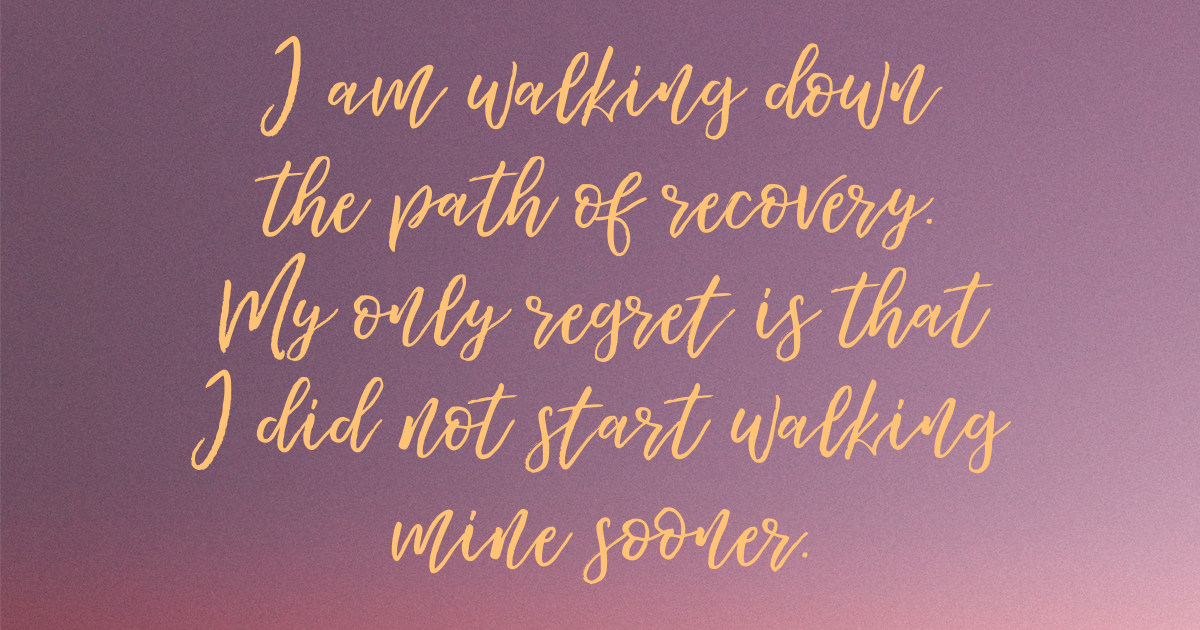This piece discusses intense topics that may not be suitable for everyone. Please use discretion.
“Mom,” I said hesitantly, the car idling while we waited for our ice cream at a drive-through window. “At what point do you think someone should go to therapy?” Simple words, but they had been trapped in my throat for about six months—festering there.
In the time following an active shooter lockdown at my university, the ground had shifted under my feet. The whole world became a mountain that I was continuously rolling down, accumulating bumps and bruises. Through news reports, I learned the grimy details of the incident. Knowing that only the perpetrator suffered long-term consequences did little to soften the edges for me.
When everyone else continued as if life was normal and nothing had happened, so did I. Except I couldn’t. Not where it mattered. Not inside my skull, the only place no one else could ever be and the only place I could never escape.
I kept telling myself that I would shake it off.
It was normal to think you were going to die when the dentist’s hook made a scraping noise against your tooth. To fall asleep in the ninth floor of a towering residence hall, listening to the wind while thinking the whole thing might topple like a house of cards, crushing you inside. For the fire alarm to set you off into an uncontrollable fit of crying.
It was normal. I was normal. Everything was fine.
When I asked a friend that I trusted if I might have PTSD, she asked me if I had flashbacks. I said no—not once had I ever hallucinated. I always knew where I was. I never had nightmares about the incident itself. “Probably you don’t have it, then,” she said.
It was normal. I was normal. Everything was fine.
I came home for summer break five months after the incident. When I slept, I dreamed. A monster stalked the halls of my school, but like a video game, every time he killed me, I had to escape him all over again. The nightmare was a shapeshifter, but at its core, it was always the same: I was afraid.
I stopped sleeping. I got three to four hours every night. The rest of the time, I stared at my wall, thinking about nothing, tears slipping down my face. I squinted in the mirror, wondering why I looked like myself and yet didn’t. I heard boxes fall in the garage and took a steak knife with me to check it out. Through the window, I saw the neighbor boys playing with Nerf guns in the backyard and I dropped to the ground. I’d thought at first glance that it was a man with a rifle breaking into my neighbor’s home.
It took six months of this slow, deadly deterioration to my personality for me to ask, hot fudge sundae and red plastic spoon in hand, if I could try therapy.
Her office was small. A crayon drawing on the wall, a private window.
“What brings you here today?” she asked, a kind smile on her face. I smiled back, twisting my thumbs, pretending I wasn’t falling apart while I told her everything.
I found out many things, but primarily that flashbacks are not always what the popular media portrays. In fact, I was having them frequently. I was reliving my trauma at night and throughout the day, in thousands of ways I didn’t realize. There were medical terms for everything I was experiencing. I was diagnosed with “trauma reaction unspecified” at first, but it later changed to “PTSD.”
People reacted with discomfort upon finding out that I had been diagnosed with a mental disorder. I think it was hard for them to believe that I—generally an upbeat person who can juggle 20 credit hours and come out with a GPA of 3.95—could struggle with something like PTSD.
In June, I did not believe there was a light at the end of the tunnel or that I could be happy again. I went through exposure therapy and cognitive behavioral therapy. Now, in January, it is extremely rare for me to be triggered. Even when I am, I have learned healthy coping mechanisms. It is manageable, and I am happy. I am walking down the path of recovery with friends at my side. Everyone has a different path. My only regret is that I did not start walking mine sooner.
If I could go back and tell myself two things—if I could tell someone struggling right now only two things—it would be the following: There are people who will understand. You can get better.

Jennifer
Also, if you suffer trauma and get therapy afterwards there is a higher rate of avoiding contracting PTSD. I wish I had known that, then I wouldn’t have tried to be strong on my own for so long, and maybe it wouldn’t have gotten this bad.
Don’t wait. Talk to someone.
Tammy Rudd
If only I had known…..but as much pain as I have suffered in my life I would not change having my daughter. I would go through all of it again for them….
Tina
whats exposure therapy?